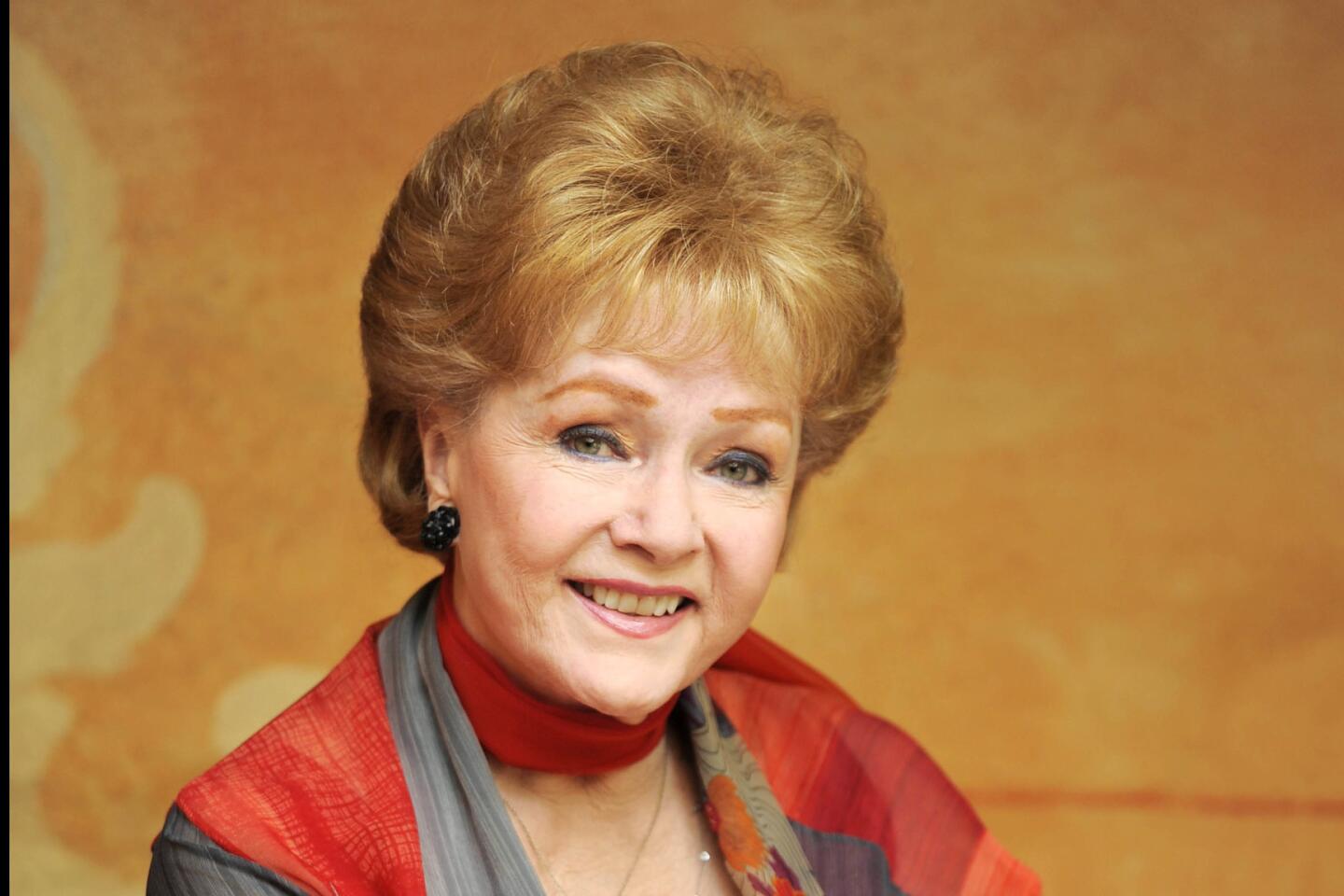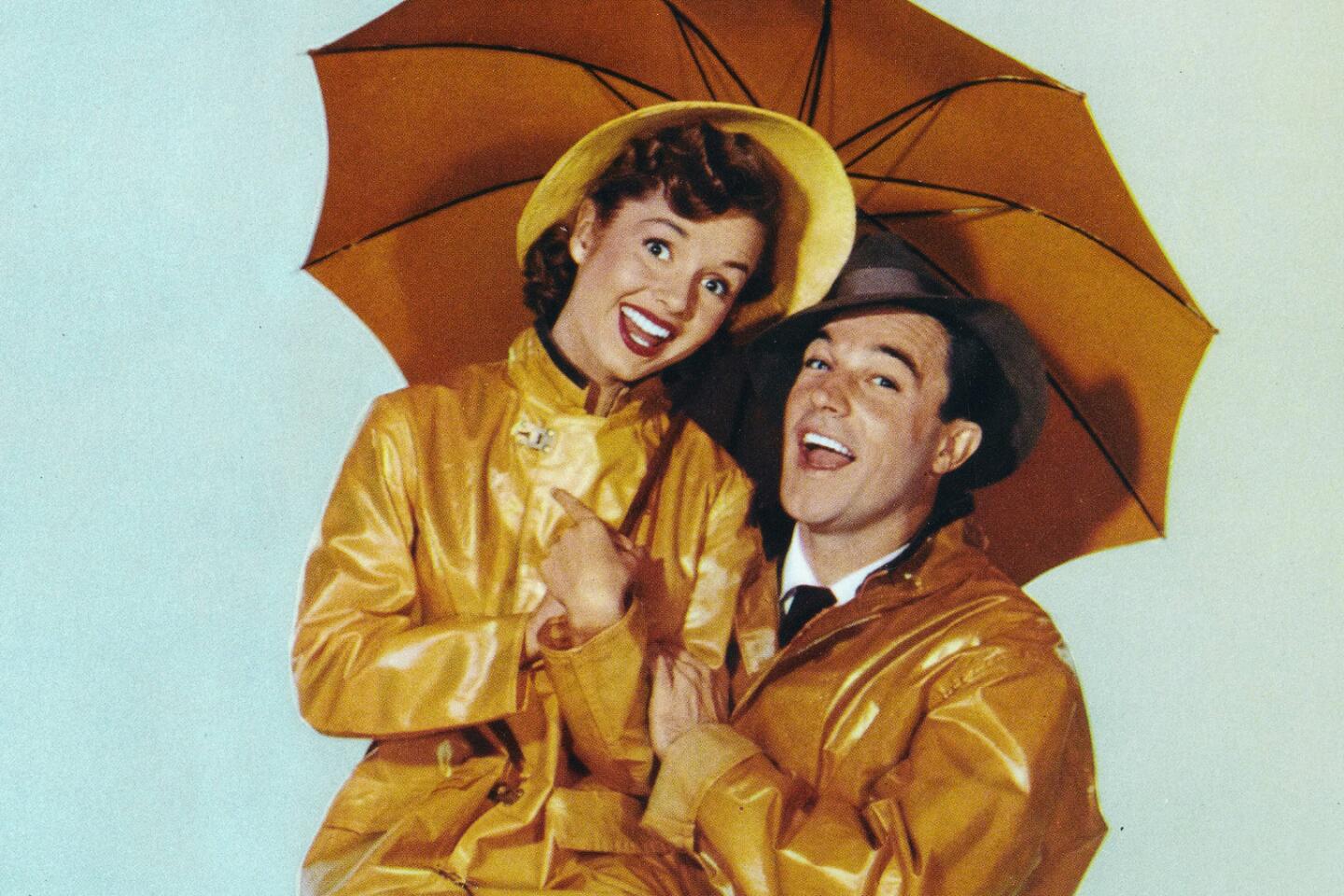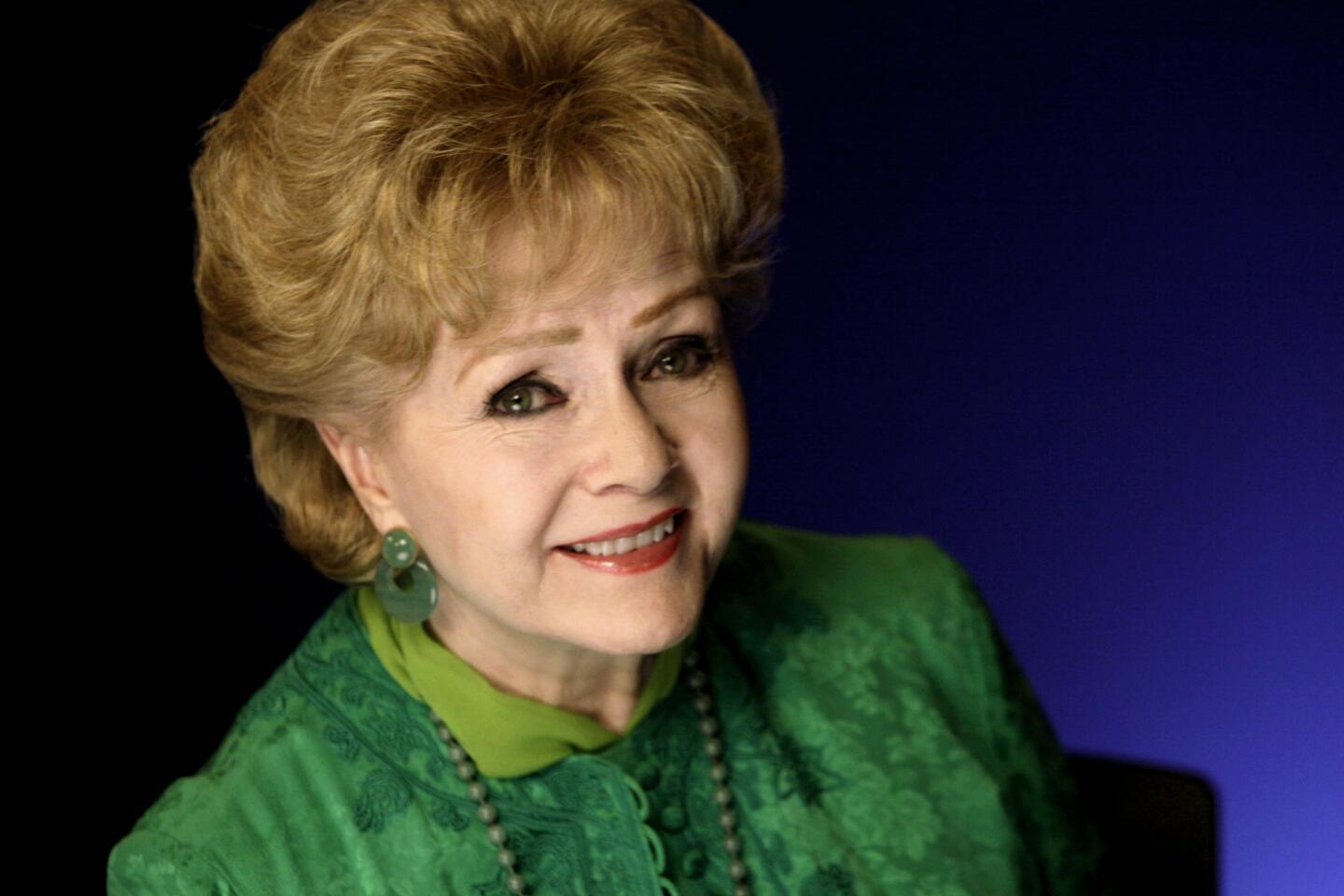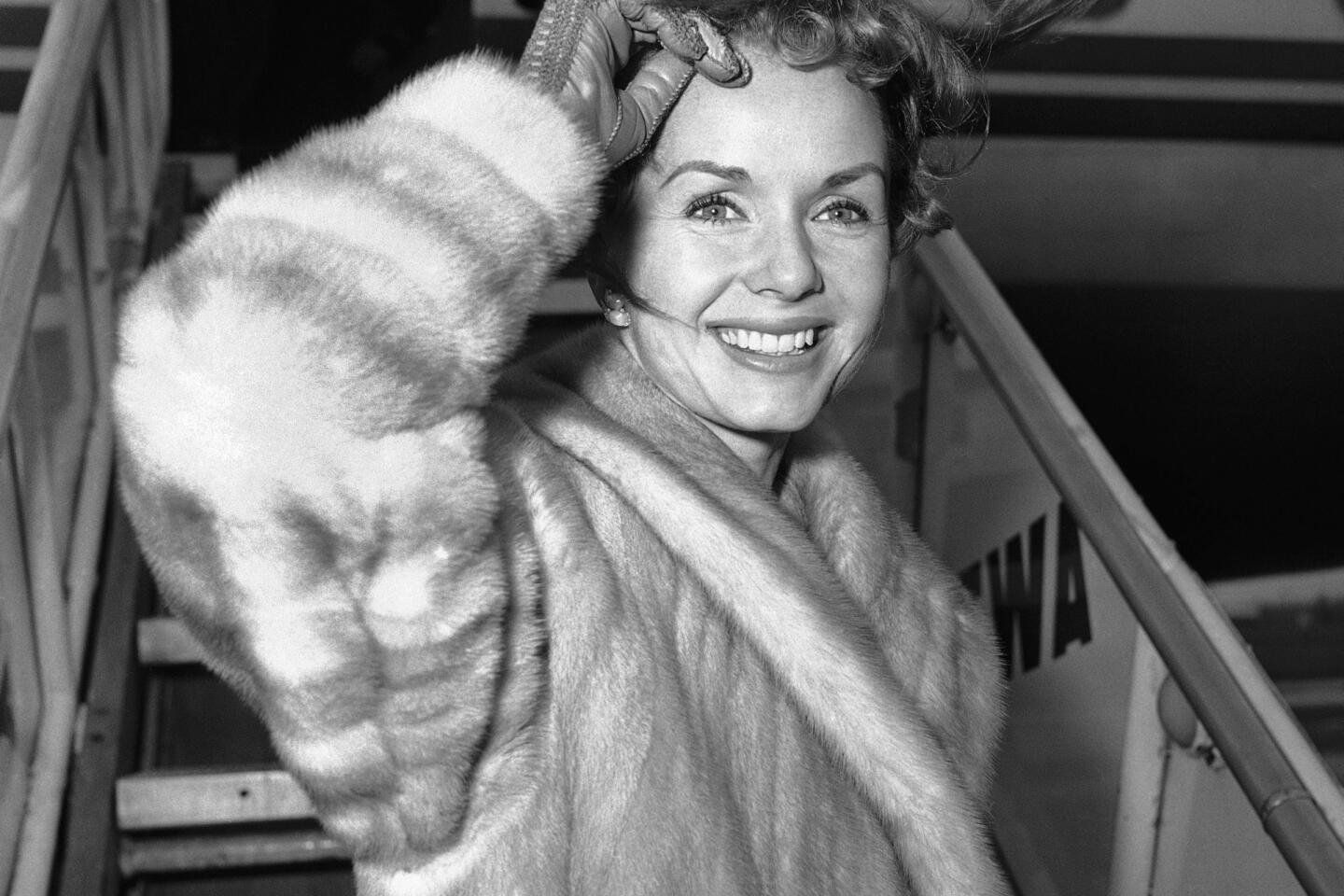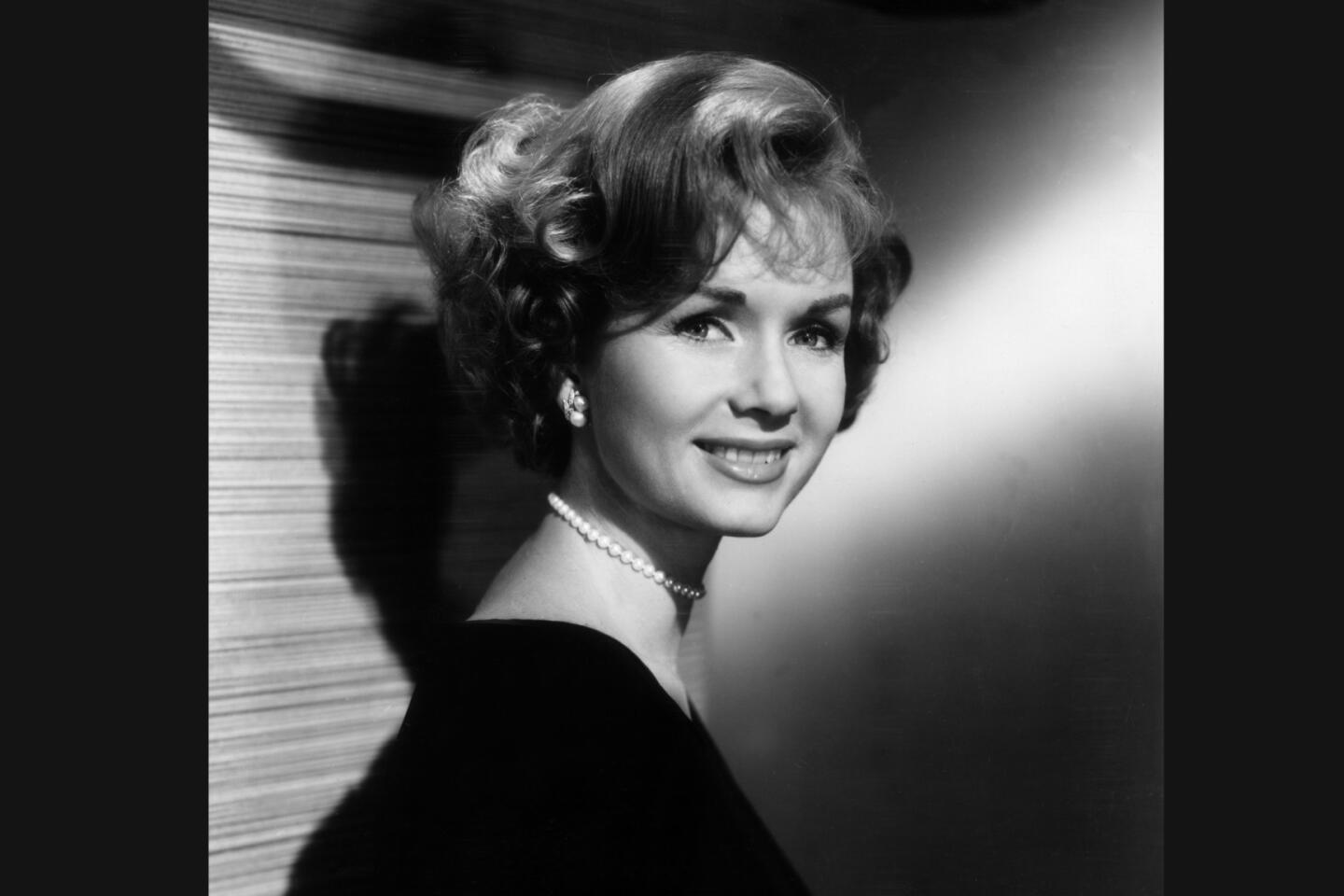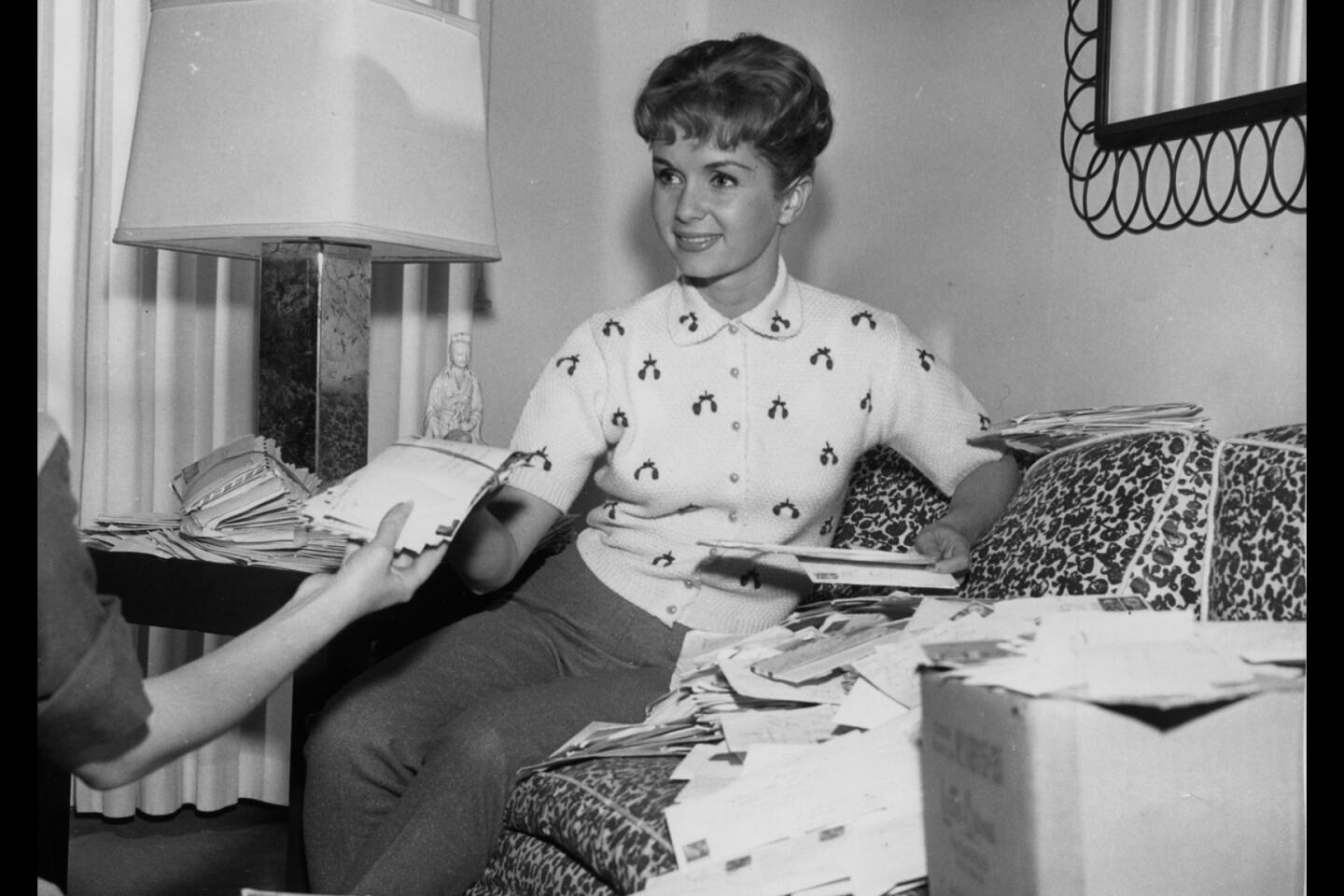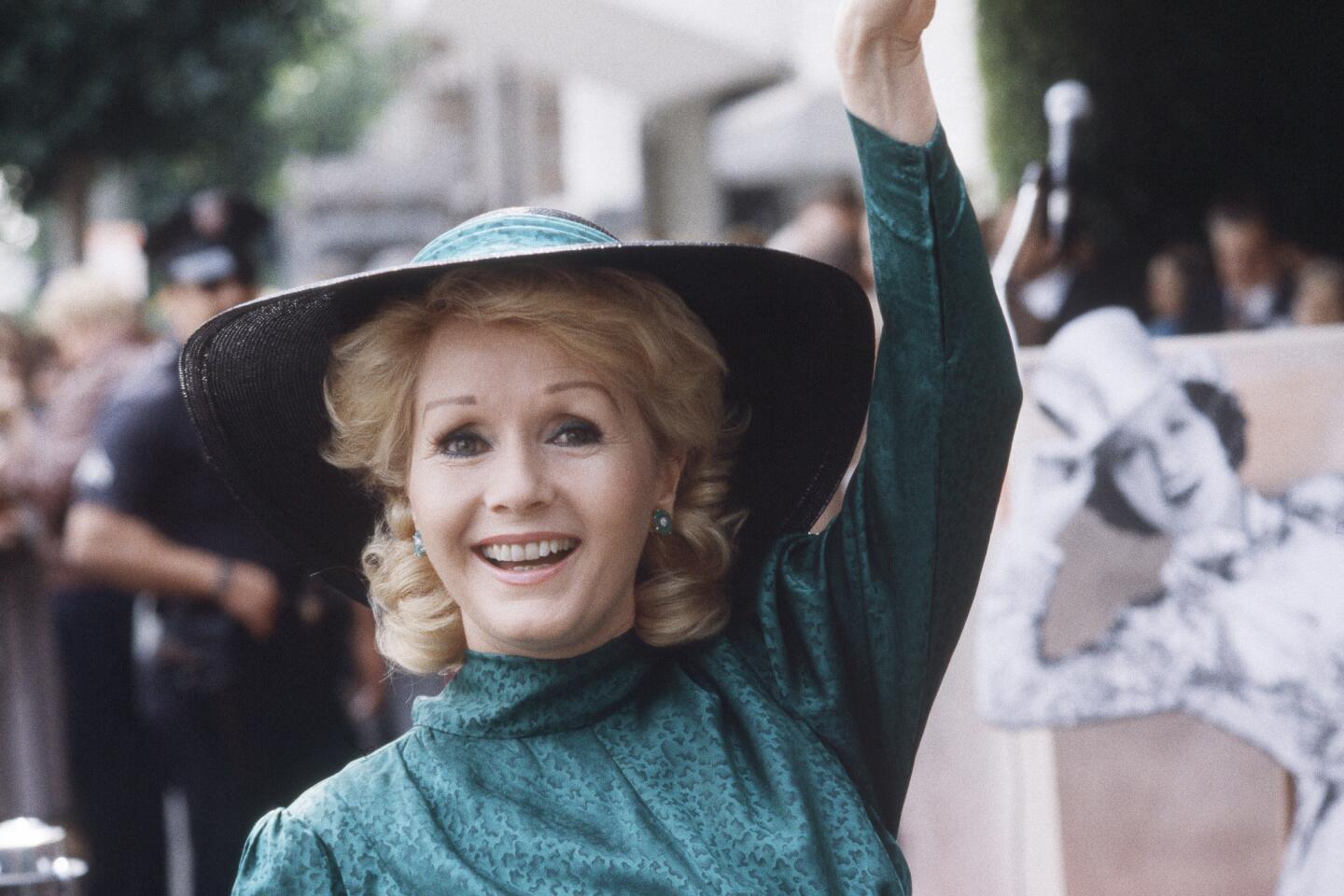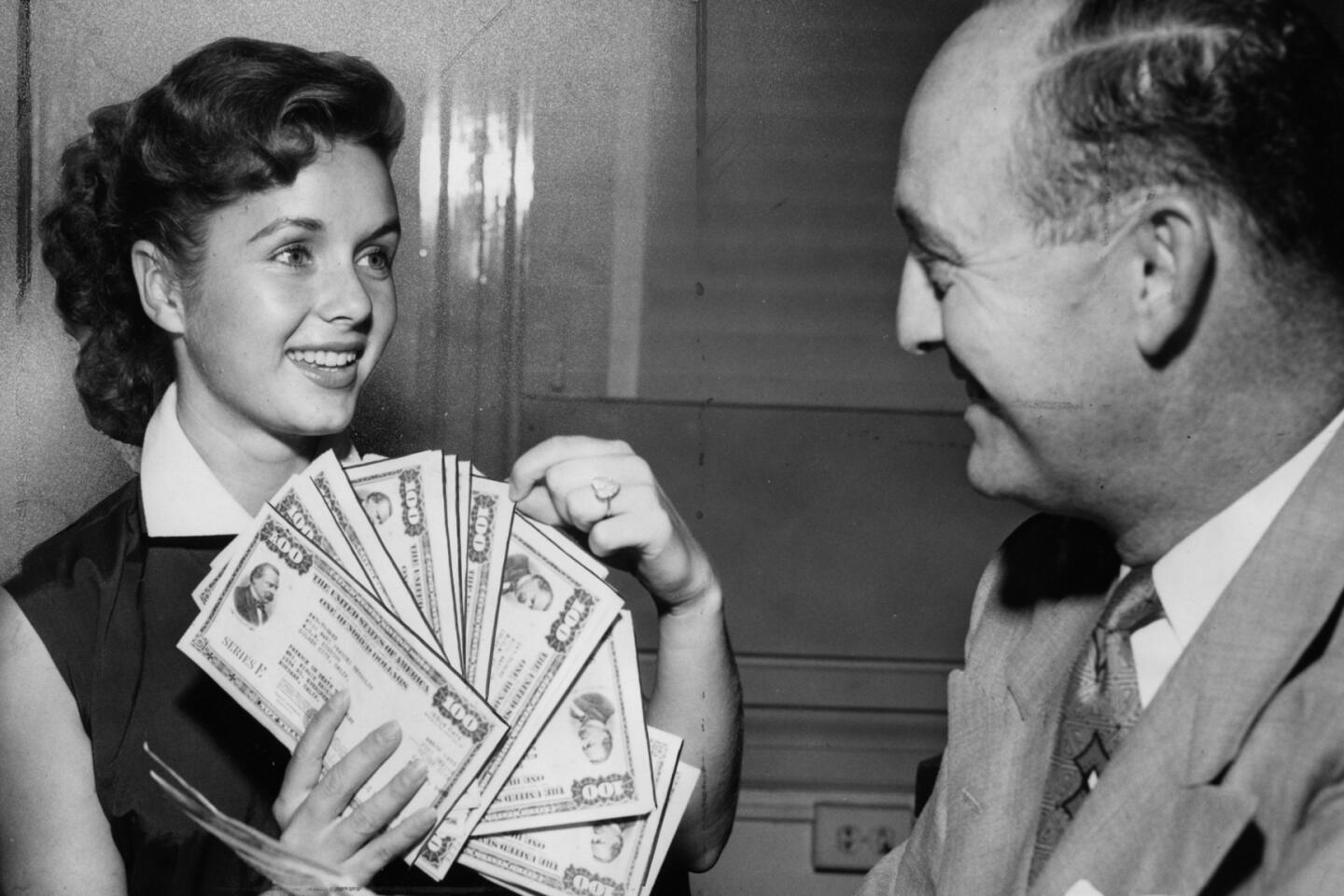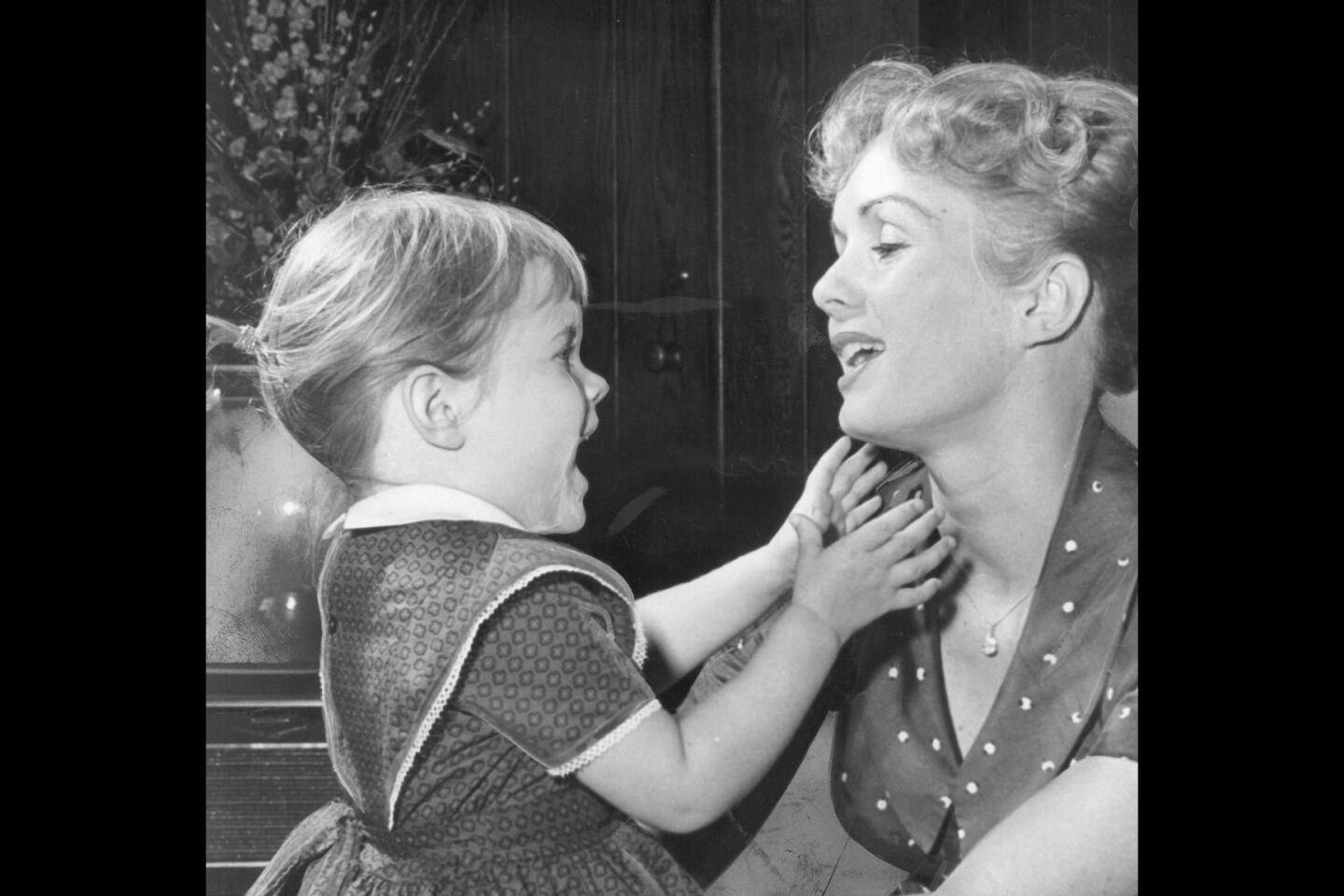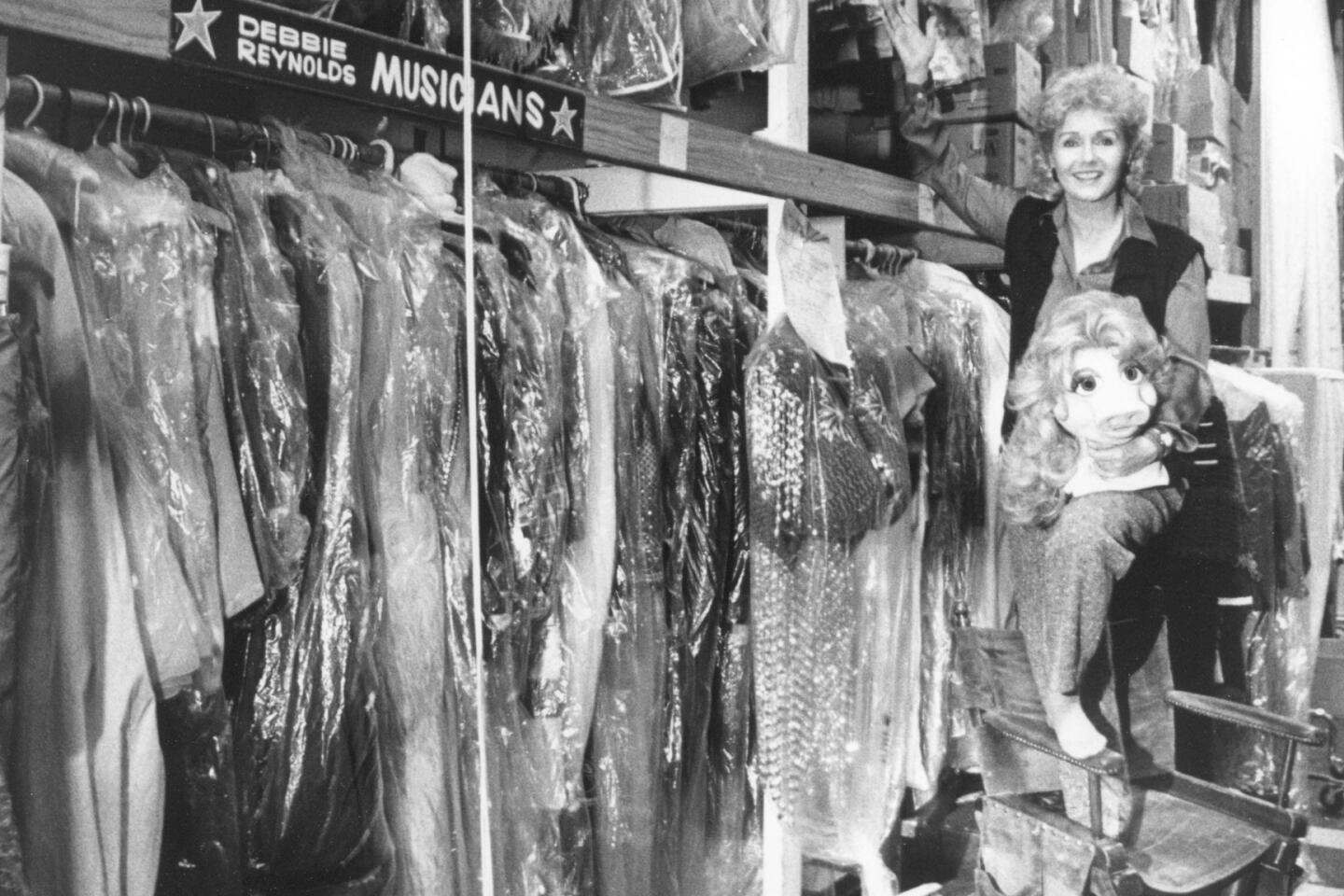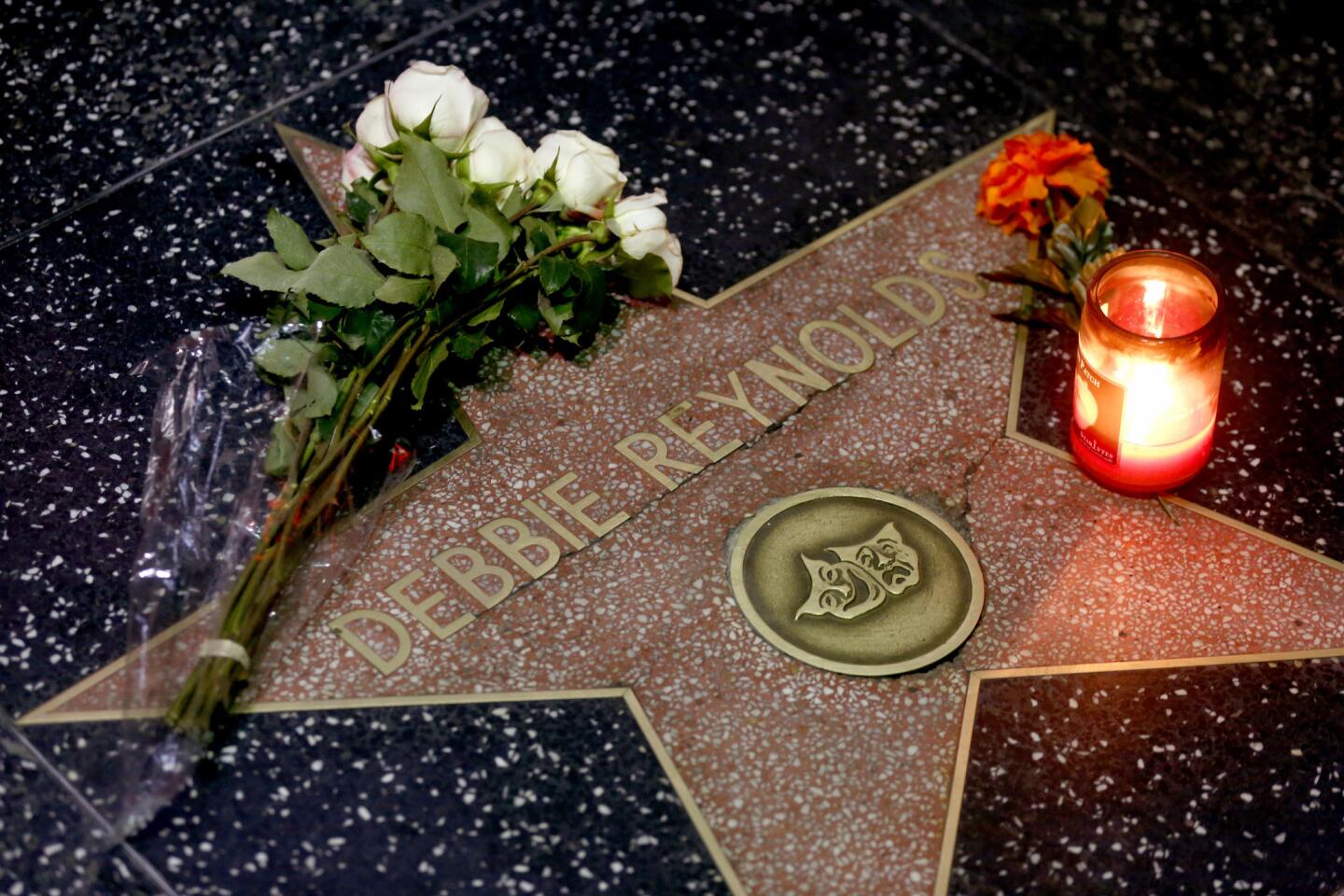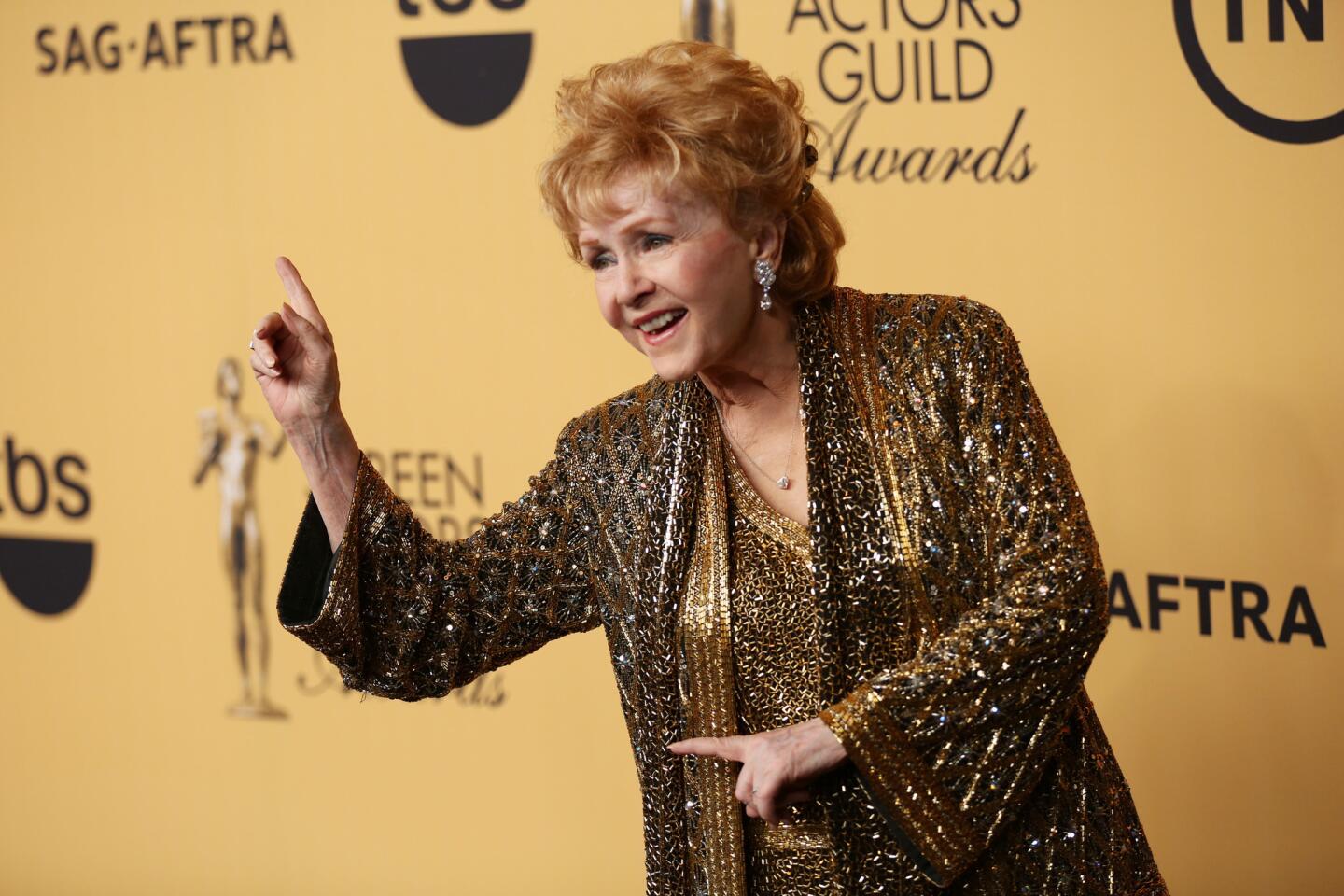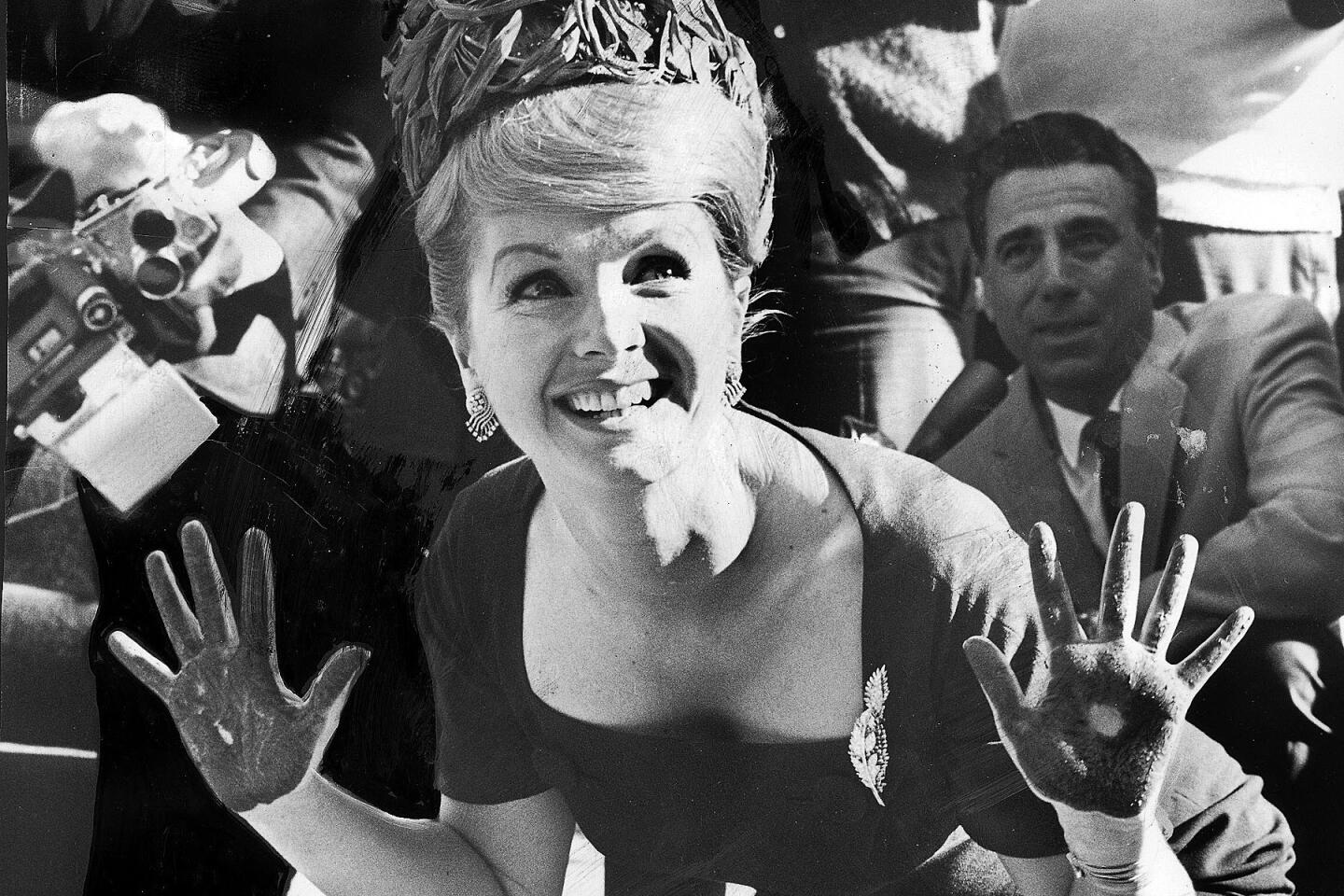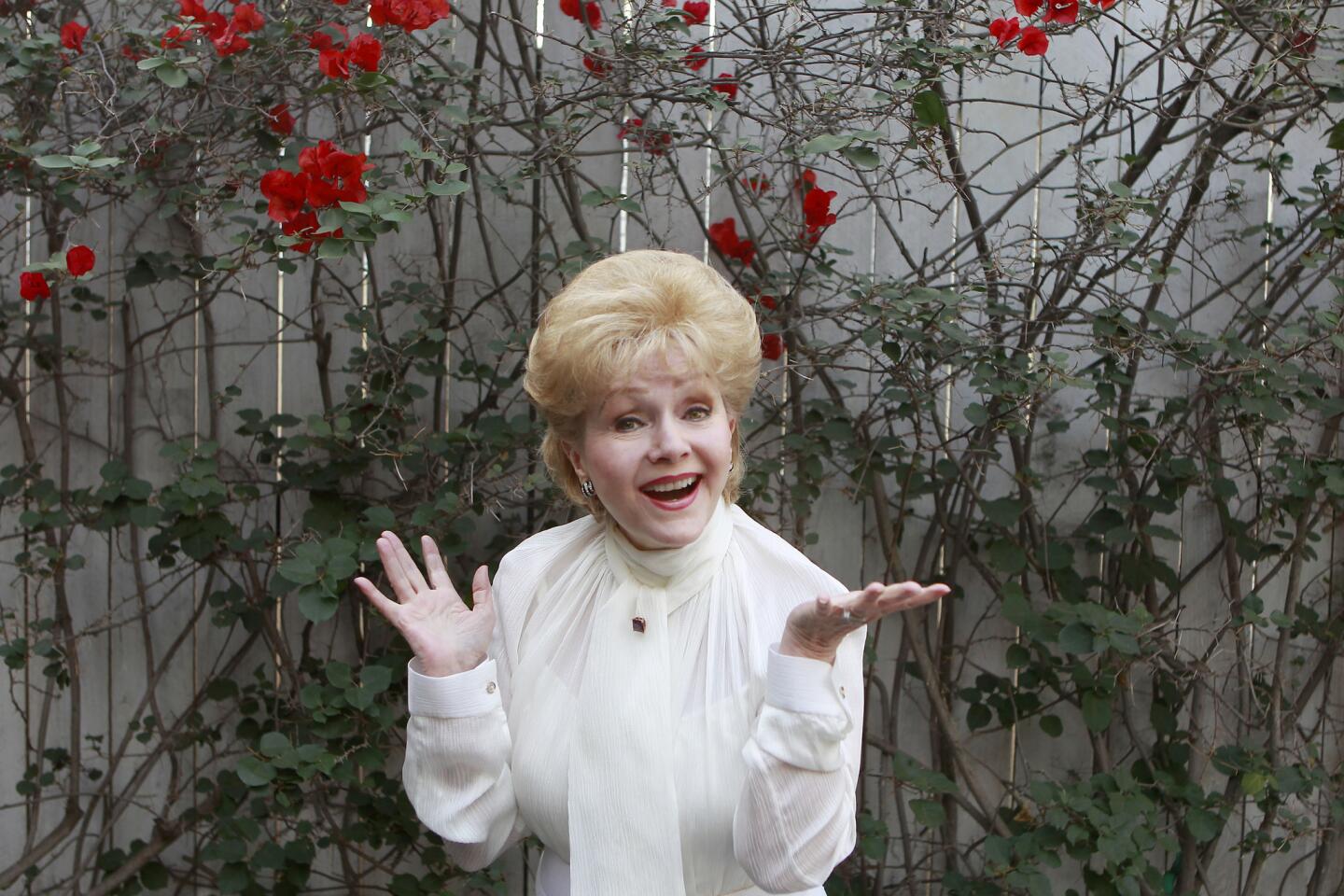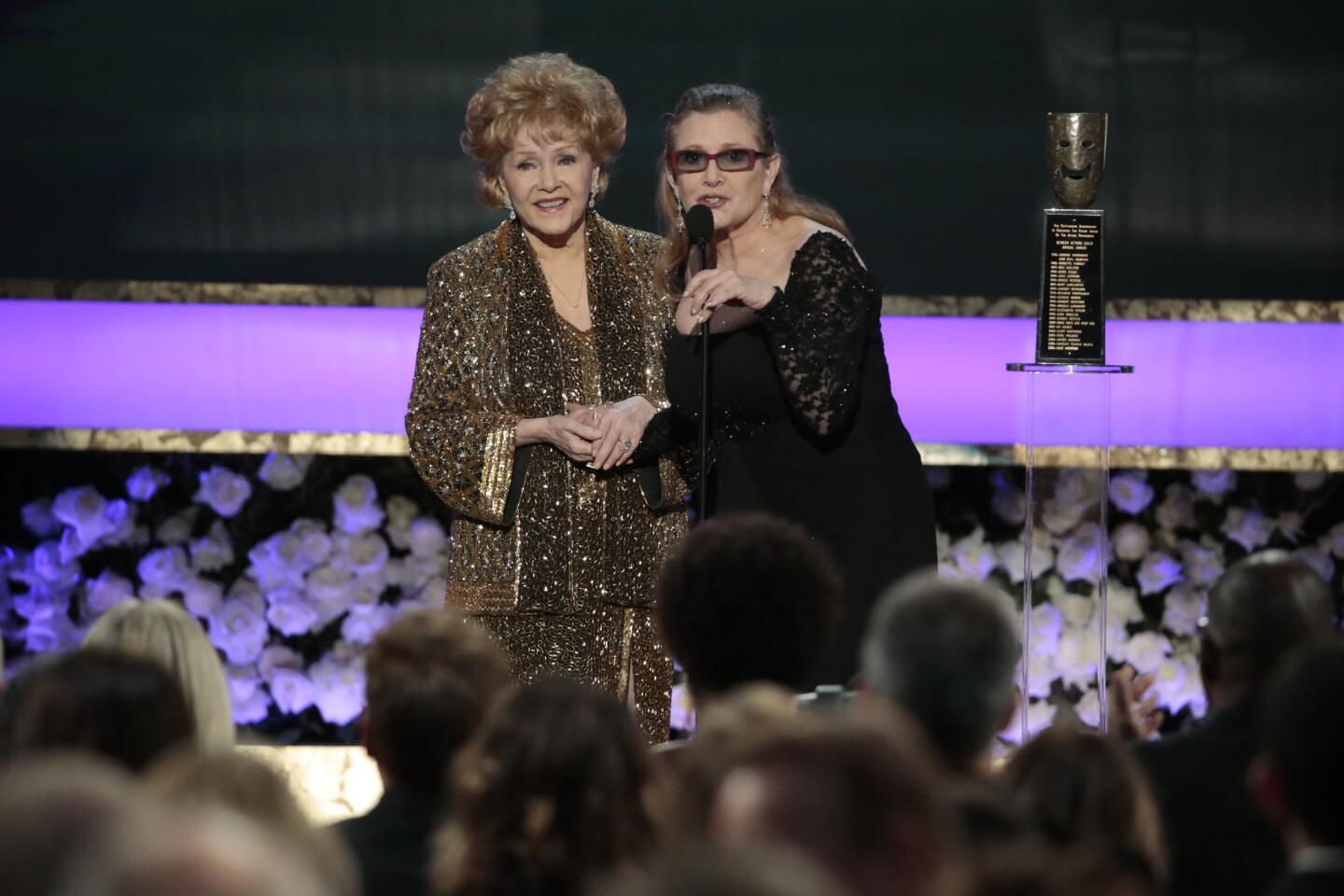Appreciation: Debbie Reynolds lived a bold life on screen and off
- Share via
She had a bold name, but Debbie Reynolds had an even bolder personality. Her screen presence was largely one of an irrepressible, unpredictable energy, all pluck and sass, and she seemed to live her life that way too. Real-life, off-screen personal drama only fed back into her work. She seemed an entertainer and true creation of show business, in the best possible sense, someone with roots in the classic Hollywood studio era who remained vital, relevant and working in a career that lasted more than 65 years.
Reynolds’ death at 84 just one day after the death of her daughter, actress and writer Carrie Fisher, feels like one final flourish to a remarkable life, but also a heartbreaking testament to the actual flesh-and-blood person who inhabited that world.
Mary Frances Reynolds was born in Texas in 1932. Her family moved to California when she was a girl. She was named Miss Burbank in 1948 and was cast in “Singin’ in the Rain” while still a teenager.
If she had done nothing else in her career, she would still be remembered for being in “Singin’ in the Rain,” a shining exemplar of Hollywood at its very best. That the film is about the transition from silent movies to sound filmmaking, with an inside-out reflexiveness, somehow made it even more perfect and a perfect fit for Reynolds.
Reynolds often said she did not know how to dance before she got the part, as she noted at the British Film Institute in 2011: “I wasn’t sexy, I wasn’t beautiful, I wasn’t cute and I couldn’t dance. Why would they take me?” One only has to see her pop out of a cake to dance and sing to “All I Do Is Dream of You” to answer the question. Her exuberance, the sheer attack with which she approached the part, made her undeniable.
And then in the “Good Mornin’ ” number, alongside Donald O’Connor and Gene Kelly, she more than holds her own. She doesn’t struggle, but you can see her working, and excited to be making it work. It is among the greatest musical numbers in the history of movies, and it is largely just three people side by side caught up in movement and music. That sense of letting the audience see her do it, tacitly acknowledging all the work that went into making it seem so effortless, would follow throughout her career.

Reynolds would be nominated for an Oscar just once, for the title role in the 1964 musical “The Unsinkable Molly Brown,” as a woman who survived the Titanic. That affectation of the survivor, of one who makes it through no matter what, likely was part of what allowed Reynolds to maintain an air of modernity for so long. She never seemed passé or out of date, as her ability to laugh at herself, to maintain charm and wit through it all, always seemed fresh.
Her onscreen persona and off-screen self had already perhaps fused in the public eye after her husband Eddie Fisher, father of Reynolds’ two children, Carrie and Todd, left her for Elizabeth Taylor in 1958 shortly after the death of Taylor’s husband, who was Fisher’s best friend. It was an astonishingly public scandal, involving a plane crash and personal betrayal. It is hard to imagine the intense drama of the moment as Reynolds, alone outside of her house, spoke to the media with her two children just inside.
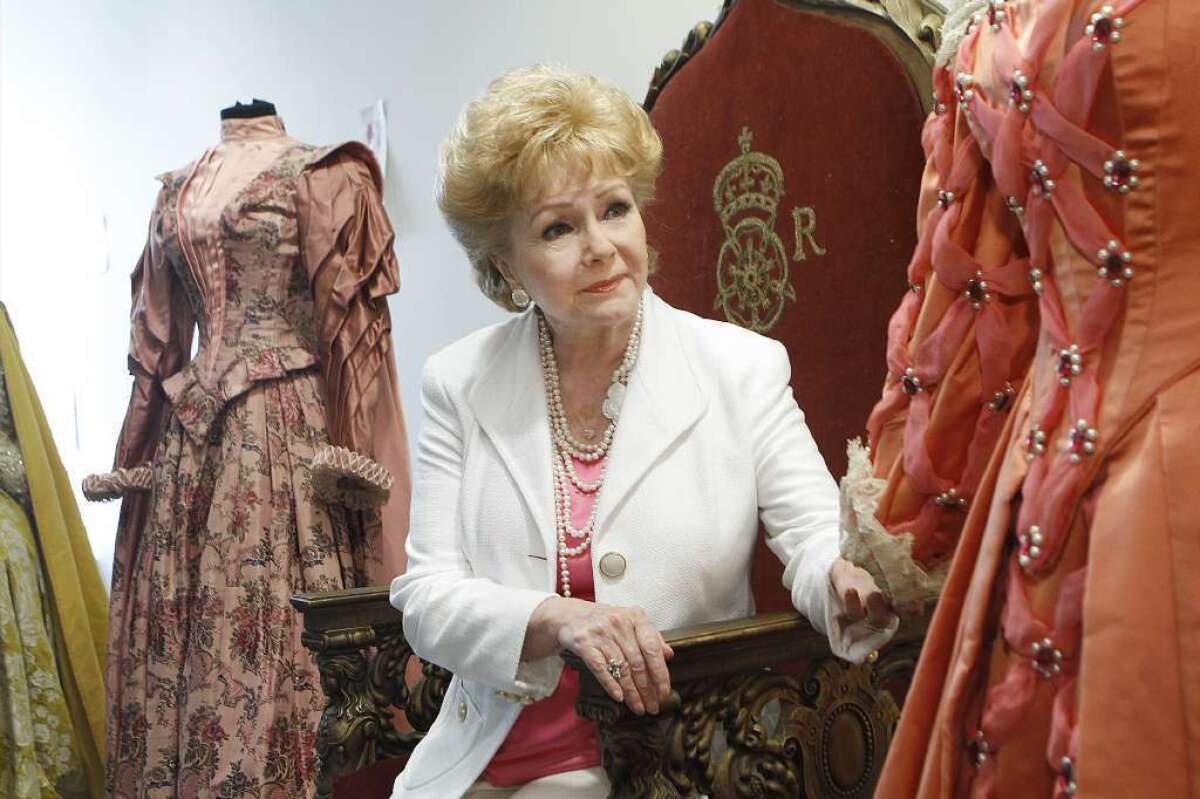
Her relationship with her daughter, Carrie, would become a major facet of her later career, as the ups and downs of their relationship would be knowingly, often playfully, depicted in a public way. In 1990, Shirley MacLaine played a version of Reynolds in Mike Nichols’ adaption of Carrie Fisher’s novel “Postcards From the Edge,” in which Meryl Streep starred as an actress often overshadowed by her actress mother. (Reynolds supposedly wanted the MacLaine part for herself.)
Reynolds’ gift for wry self-awareness found a perfect fit in Albert Brooks’ 1996 “Mother,” in which she toyed with the image of herself as a difficult mother. She got an Emmy nomination for playing a brassy, showbiz mom on TV’s “Will & Grace,” and her last on-screen role was in Steven Soderbergh’s 2013 “Behind the Candelabra” as the tough, disapproving mother of Liberace. She and Fisher appear together in the documentary “Bright Lights: Starring Carrie Fisher and Debbie Reynolds,” which has been playing festivals since its premiere earlier this year and is scheduled for what now will be a bittersweet broadcast in January.
All of this is to leave out entirely her two other marriages, each with its own dramas, her astonishing collection of Hollywood costumes and memorabilia, which was auctioned for millions of dollars, or her longtime dedication to various charities, for which she received the academy’s Jean Hersholt Humanitarian Award in 2015.
Fisher’s daughter Billie Lourd, herself now a young actress, was recently on a late-night talk show and joked, “She gets really upset when I get called ‘Carrie Fisher’s daughter.’ She wants people to call me ‘Debbie Reynolds’ granddaughter.’ … She started it.”
A personal aside: In the spring of 2013 I was asked to moderate a conversation with Reynolds at the L.A. Times Festival of Books, where she would be talking about her memoir “Unsinkable.” I first found her sitting off by herself, looking glamorous in a white suit and oversize sunglasses, with an assistant and a small white dog. She said that the dog belonged to Carrie and that she was watching it while her daughter was out of town. She was friendly and polite, if a bit reserved. We all piled onto a golf cart, and as we were driven a short distance to where our talk was to take place, people noticed her. She waved, the attention revving her up.
Walking through a building, at some point, there was a staircase. Everyone paused, looking for an elevator or alternate route. She reared herself back, with a theatrical flair, and bounded up the steps. Suddenly, we were all chasing her. As if by instinct, she found her way onto the stage. The rest is a bit of a blur. I was holding her dog as she did a bit of a soft-shoe for the crowd, my girlfriend walked the dog offstage, but the dog was brought back out to sit at Reynolds’ feet.
She was a delight — funny, cutting, candid, unexpectedly bawdy and always heartfelt. You could immediately see the connection to her daughter’s own gifts for storytelling and self-revelation. She drew energy from the crowd, as they did from her. The questions from the audience were intensely personal, people conveying very specific memories of Reynolds on screen and off. And she took it all in.
That crowd loved Debbie Reynolds, the plucky, perseverant woman next-door. But more important, she loved all of them. She loved all of us and gave us everything she had.
SIGN UP for the free Indie Focus movies newsletter »
Follow on Twitter: @IndieFocus
ALSO
Debbie Reynolds, who sang and danced to fame in ‘Singin’ In The Rain,’ dies at 84
Appreciation: Remembering Carrie Fisher: actress, writer, icon
More to Read
Only good movies
Get the Indie Focus newsletter, Mark Olsen's weekly guide to the world of cinema.
You may occasionally receive promotional content from the Los Angeles Times.
